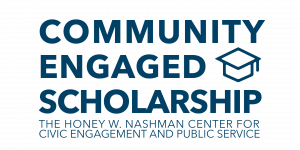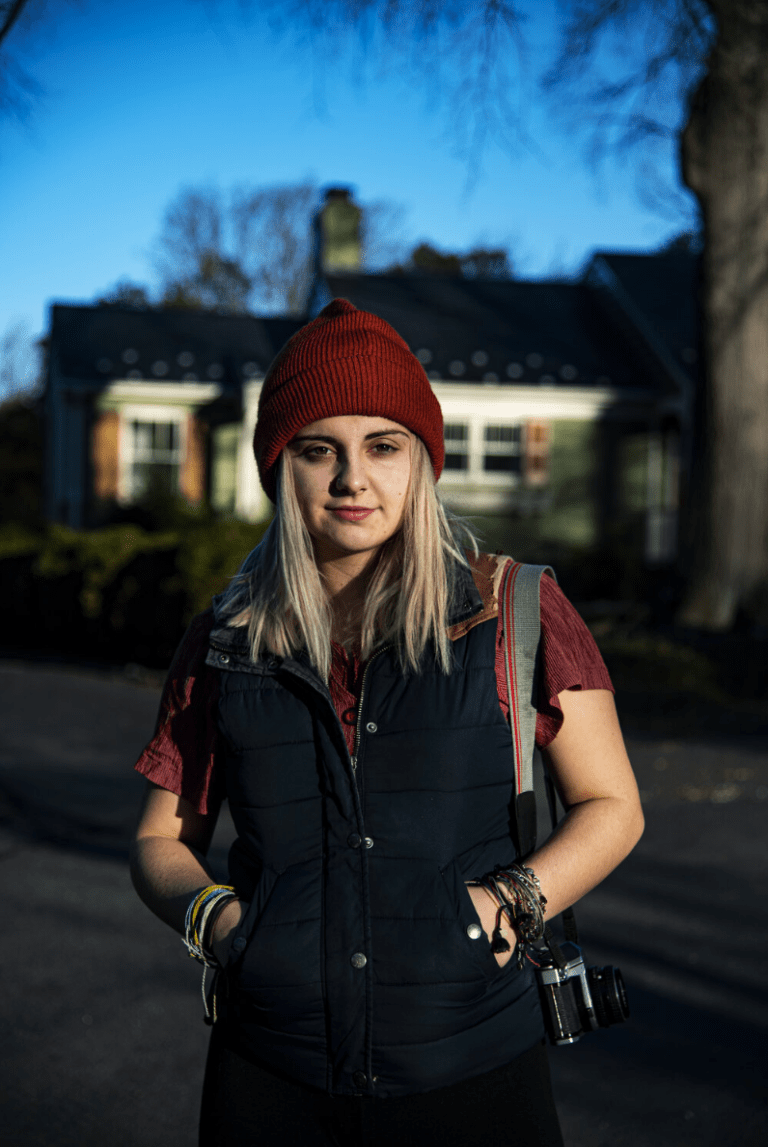
UW 1020 – Writing For Social Change in Washington D.C.
Professor: Phyllis Ryder
Students Reporting: 33
Time Reported: 224
Course Description:
“How do community leaders discover and name the systems that reproduce inequalities? How do they choose the right course of action? How do they mobilize people to respond? How can you contribute to this work?”
Professor Ryder’s UW 1020 course sought to address these questions and challenge students during the Spring 2022 semester. Students reflected on their own values and identity through a combination of writing and service learning, while strengthening their writing skills in the process.
In this service-learning course, students partnered with D.C. community leaders who addressed social inequities in areas such as housing, education, criminal justice, and the environment. In class, students analyzed local sites to learn how to research and write for community action both for academic and public audiences.
Students at GW are required to take a UW 1020, of which there are a variety of niche topics taught within the program. In this class, students examined the very idea of “writing well.” In this course that meant learning that the rules for “good writing” are themselves tools that can include and exclude people from power. By the end of the semester, students were able to build their own toolbox for developing complex, meaningful writing projects for diverse audiences.
For information about Community Engaged Scholarship at GW: https://go.gwu.edu/cesc
| Community Partner |
Describe Project |
| Free Minds Book Club |
With the Free Minds Book Club, students helped give written feedback to incarcerated youth on poetry and writing projects with other volunteers. Students also attended writing circles where they gave advice and ideas on writing projects via zoom to authors of poems and stories. |
| Latino Student Fund |
As part of the LSF tutoring program, students helped reinforce math and English skills for PreK through 12th-grade students. Students met weekly as either a tutor or mentor with an individual student, building close relationships with the student throughout the semester. |
| Little Friends for Peace |
Students had the opportunity to partner with LFFP as after school tutors for younger children struggling in school. As trained volunteers, students built close bonds with their students and the LFFP program, developing stronger interpersonal communication skills. Some students also participated in LFFP’s peace circles, learning about peace and conflict resolution through direct service. |
| Miriam’s Kitchen |
Students partnered with Miriam’s Kitchen, a nonprofit organization that aims to end chronic homelessness in Washington D.C., to prepare meals for guests and distribute additional resources including toiletries and clothing. |
Quotes from students:
“I participated in a peace circle for high school kids at Holy Family Catholic Church. The theme of this series of circles is building healthy relationships, and this session focused on connecting with others. I really enjoyed getting to meet a lot of the students! It was nice to connect with them and help them connect with each other. I often find that when helping with a peace circle, I get just as much benefit from it as the actual participants!” - A student serving with Little Friends for Peace
“This was my third time attending a Write Night event with Free Minds Book Club, and like both other times, I found this experience to be educational, enjoyable, and meaningful. Listening to the Poet Ambassadors stories is very interesting and gratifying because it shows how meaningful the work being done at these events and by this organization is. I found this time to be especially moving because the Poet Ambassadors shared two poems, "Looking Out My Cell Window" and "Under the Jail," both of which were written by a Free Minds member who recently passed away while incarcerated. The poems were very powerful and hearing them spoken out loud was an impactful experience for me.” - A student serving with Free Minds Book Club
“My student still faces difficulties with opening up and accepting my help, but slowly but surely, I'm sure she will become more and more comfortable to ask for help. I was available for my student during out tutoring sessions for whatever questions she had about homework and what she had been learning in school. This gives my student an extra resource for additional learning in academic subject areas she's having trouble with.” - A student serving with the Latino Student Fund
“During this experience, I helped with the peace classes at Chance Academy. I participated in three different groups with all ages of kids. It was a great experience to work with the kids even though it had to be over zoom. I really enjoyed learning about what a peace circle consists of and getting to be a part of one. It was great to make connections with the kids and make them feel heard!” - A student serving with Little Friends for Peace
Cause Distribution:





